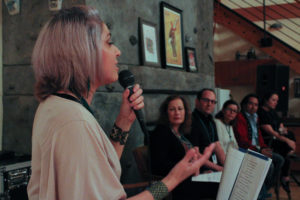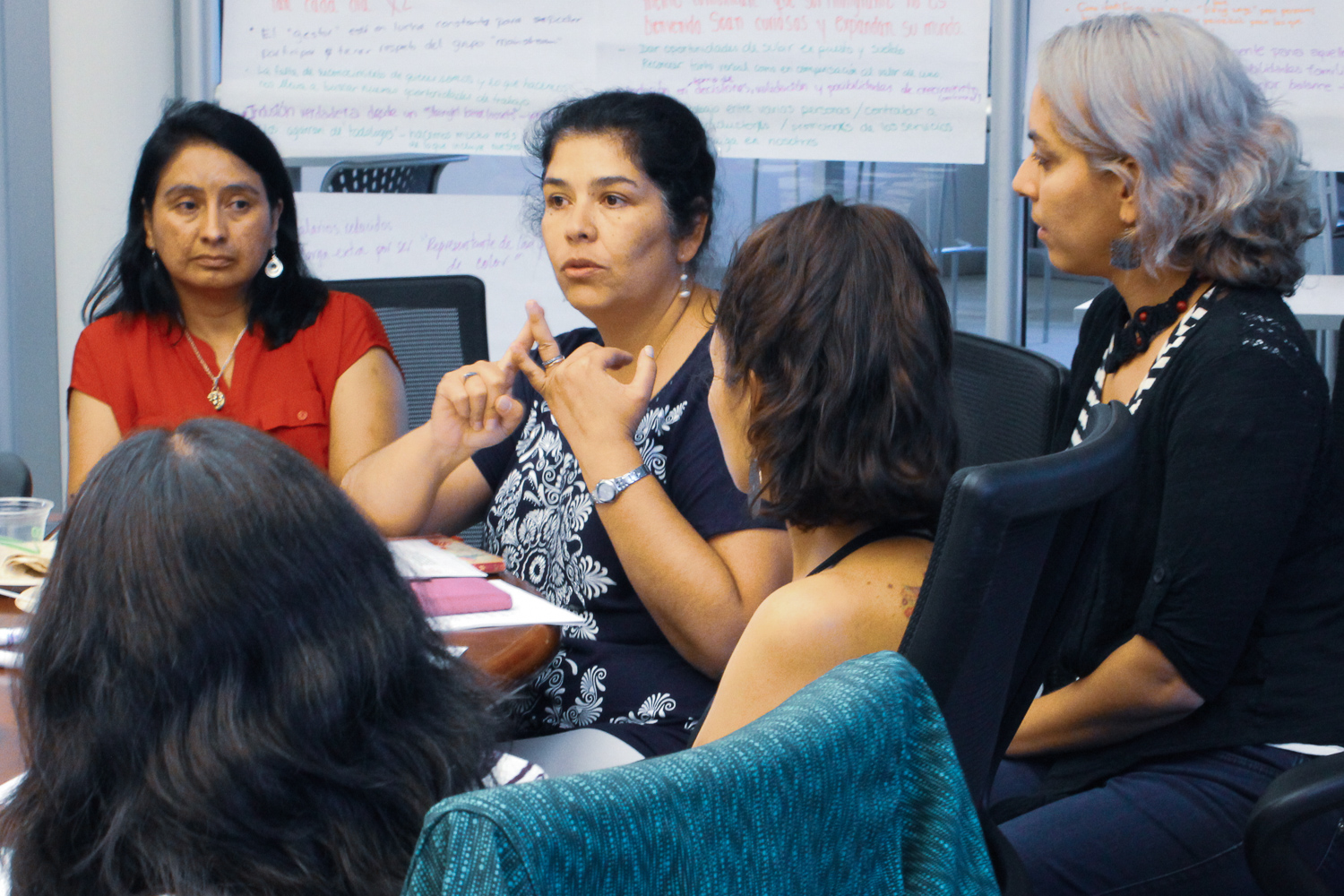Relationships are so important to Philanthropiece that we’ve recognized them as a fundamental part of our mission: “through building deep and authentic relationships, we empower changemakers around the world to co-create resilient communities.”
As many families and community members know, relationships during the COVID-19 pandemic have undergone significant changes. The partnerships and collaborations at the center of our work at Philanthropiece are no exception. One of the richest existing relationships that further evolved during the pandemic has been in our work with the Cultural Brokers Resilience Program (CBRP).
Boulder County recognizes cultural brokers as community partners who bridge diverse cultures and reduce current or potential conflict.
Though first recognized by anthropologists in the mid-1900s, the concept of a cultural broker has developed over the years. In the work of the CBRP, Boulder County recognizes cultural brokers as community partners who bridge diverse cultures and reduce current or potential conflict by co-creating, with the communities they serve, innovative strategies for change in areas of mediation, resource sharing and navigation, mentorship, and the promotion of culture for civic engagement and public participation in advocacy and activism. As a whole, the program works with local governments and nonprofits to advance social justice by supporting community engagement and professional development for the work of cultural brokers in their communities.

Notes hang on the wall during a Suma Latina meeting
The work of the CBRP began last year,as part of Boulder County’s response to a Longmont Resiliency For All report that was commissioned after the 2013 floods. The report highlighted the importance of cultural brokers in the community. However, the work of cultural brokers stretches back many years.
“The cultural brokers’ work has been going around for 30 or 40 years unrecognized in the region. After the 2013 floods and the Resiliency For All report, the value of cultural brokers was highlighted in Boulder County,” explains Guillermo Estrada-Rivera, the Cultural Broker Resilience Program’s coordinator.
The unique value of the project lies in its ability to develop a strong network of communication that can be used in times of crisis
Today, the Cultural Brokers connects countless individuals and organizations, multiplies the efficacy of resources, and builds bonds between groups with similar visions. The unique value of the project lies in its ability to develop a strong network of communication that can be used in times of crisis to respond effectively and holistically to community needs.

Cultural Brokers gather together during a Suma Latina meeting in the Boulder Public Library.
The relationship between the CBRP and Philanthropiece started after Guillermo invited Laura Soto, Philanthropiece’s Operations Manager, to a community-building event designed to spread the word about the Cultural Brokers Program development.
“I went to the first gathering where Guillermo was explaining what the new Cultural Brokers project was. I immediately fell in love with the concept. I identified all the work I have done in past years as falling under the description [of a cultural broker] and immediately realized how important it was to promote and to support that work,” explains Laura Soto.
After that initial meeting, Philanthropiece staff and Guillermo continued to look for ways to advance the important work of the Cultural Brokers project.
“Developing our relationship [with the CBRP] fit really well into the model of how Philanthropiece gets into collaborations. We build a relationship. There was that first time that Laura attended an event and then it was these back and forths: ‘Let’s talk more, let’s learn more about who’s doing what.’ And that trust started being built over multiple meetings and participation in events. And then at some point, we started talking about, ‘Is there room for collaboration on something?’” explains Jake Matlak, Director of Programs at Philanthropiece.
After establishing a letter of agreement, Laura began to devote part of her staff time to working with the CBRP. That work included building out the CBRP advisory committee by connecting Guillermo Estrada-Rivera with a valued network of Latinx community leaders. Laura also co-designed and co-facilitated the first Cultural Brokers training. The training was held in Spanish and was created to hone the skills of bi-lingual community members who were already serving as unofficial cultural brokers in their organizations. The 20-hour training covered subjects such as accessing information and resources, cultural competency, self-advocacy and activism. The work crystallized the value of collaboration and vision amongst both organizations.

Laura Soto speaks during our Celebración y Convivencia event. A panel of cultural brokers sits in chairs behind her.
“We consider Philanthropiece as our primary partner. They have been there from day one with the training, helping us with staff time, co-facilitating. It’s a lot of technical support and also check-ins, where we sort of check ideas, check the future community impact, areas where the Cultural Brokers can create an effective impact in the community. Our core values in both institutions and the way we work, it’s very aligned, “ says Guillermo.
Once COVID-19 hit the community, the strengths of the relationship between the CBRP and Philanthropiece became critical in crafting a rapid response to the needs of the community. These strengths included strategic communication and coordination amongst a vital group of cultural brokers and non profit organizations who were working to address the financial and resource needs brought about by the pandemic . This network of support became a crucial part of the way in which the CBRP and Philanthropiece were able to respond to the COVID-19 crisis.
“When COVID hit, because of everything that happened, we developed the Cultural Brokers response team. What we did, with the help of Philanthropiece, was to create a resource catalog that was available for undocumented community members. With Philanthropiece and other community partners and volunteers, we filled in the gap for those needs that other systems couldn’t respond to immediately,” explains Guillermo.
The resource catalog was also an important part of the Undocu-Relief Fund, which Philanthropiece established with other community partners. The Undocu-Relief Fund provided emergency funds for undocumented individuals who could not access the federal stimulus checks. The Cultural Brokers Resilience Program helped the Undocu-Relief Fund effort by spreading awareness about the fund to eligible community members and relevant nonprofits working in that space. The CBRP also connected impacted community members with necessary resources via this website to complement the support of the financial assistance from the Undocu-Relief Fund.
Responses to the ongoing pandemic continue and the relationship between Philanthropiece and the Cultural Brokers Resilience Program is still growing. Other projects have grown out of the collaboration, including being involved in the Boulder County COVID-19 Community Task Force, which was created to incorporate the voices of those community members most impacted by the pandemic. And the CBRP, with the partnership of Philanthropiece, is just finishing its second round of Cultural Brokers training which was held in English this year. The possibilities for continued collaboration and growth between organizations seem wide open.
“We are doing a lot, and I am deeply grateful for all the support from Philanthropiece. It’s amazing to have that kind of partnership where you feel so supported and just have that space for growth. Every time we talk, it seems like we come up with more ideas and more possibilities. It’s something that really inspires me,” says Guillermo.
Morning Glory Farr is the Philanthropiece Foundation’s Content Manager and Editor. She also serves on the foundation’s Advisory Board.
For more information on the Cultural Brokers Resilience Project, see the 2020 Mosaics Report, “Exploring the Diversity of Latinx Cultural Brokers in Boulder County” read a recent article on the Longmont Leader, “Cultural brokers training aims to empower participants to advocate for their communities” and listen to Guillermo explain the critical and beautiful role of Cultural Brokers in this interview with the Latino Chamber of Commerce.

